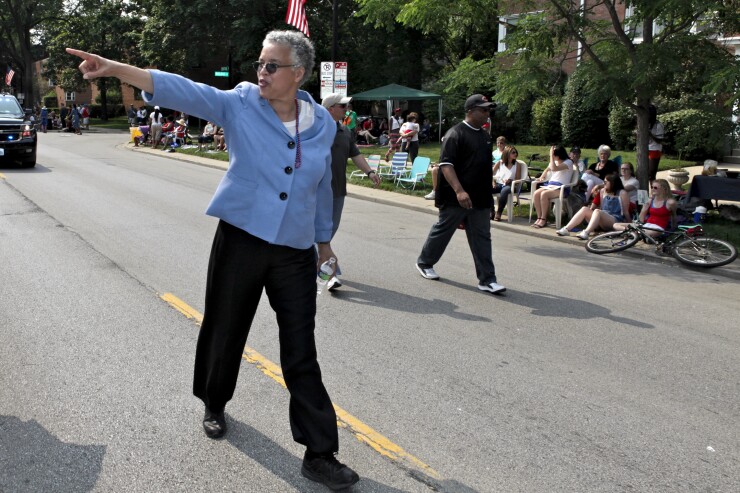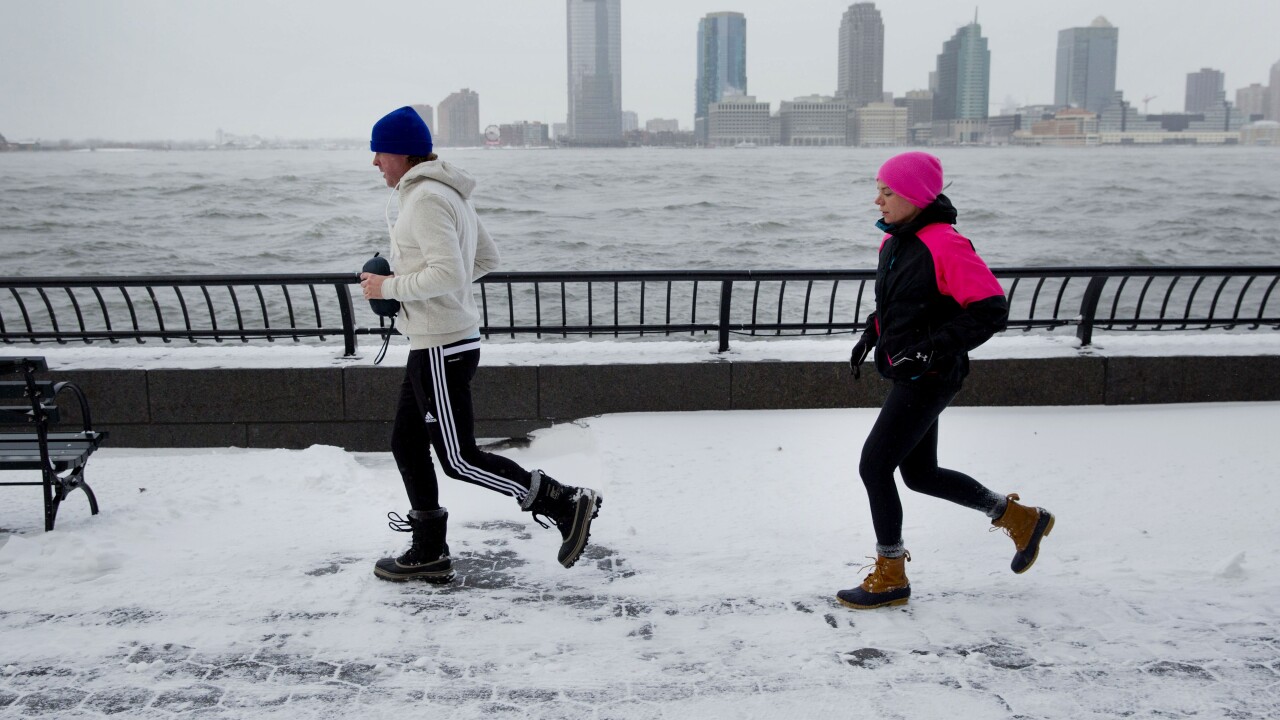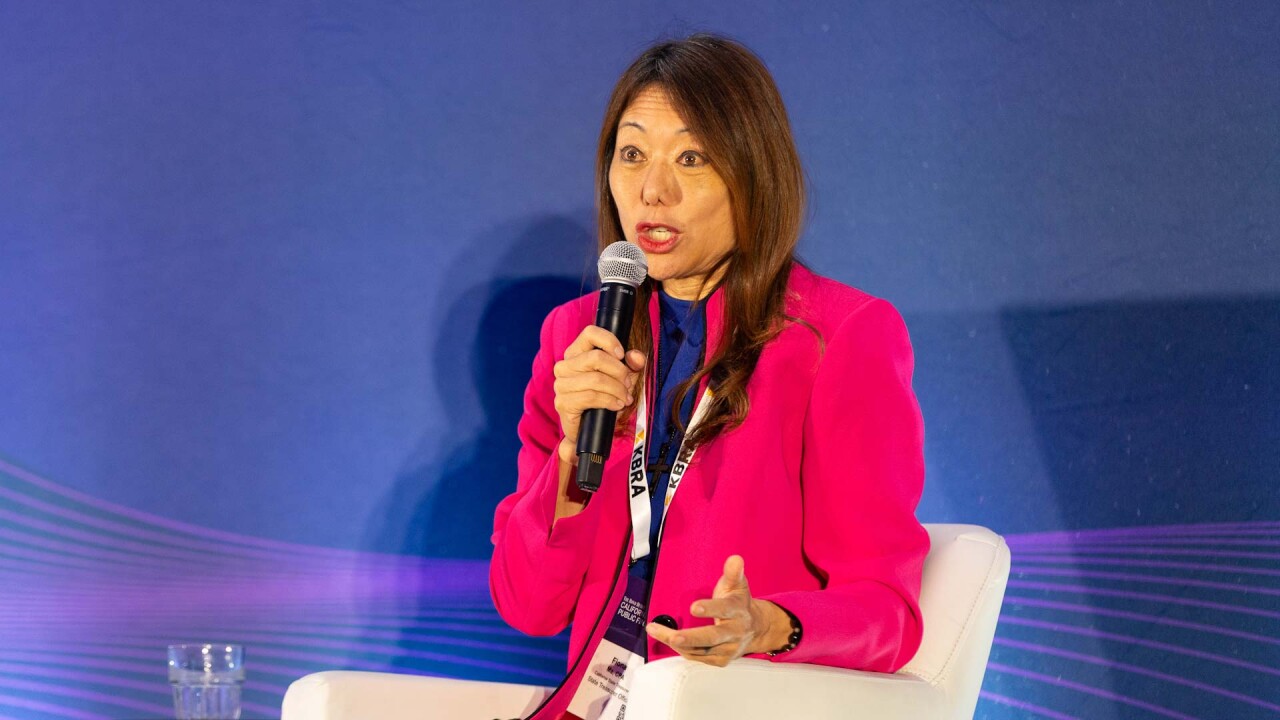CHICAGO – Cook County, Illinois Board President Toni Preckwinkle warned of layoffs and service cuts that would harm healthcare services if the board repeals a controversial penny-per-ounce sweetened beverage tax.
A measure to repeal to the tax that took effect earlier this summer was introduced to the board Wednesday and sent to the board’s Finance Committee which next meets the week of Oct. 9th. The ordinance was submitted after dozens of opponents and supporters addressed the board during a public comment period with some hoping for a vote Wednesday.
At stake is $68 million the tax is expected to generate in the current fiscal year and then $200 million in annual revenue going forward.

“It’s about whether or not we want Cook County to be healthier, safer and more efficient or if we’re willing to go backwards and let Cook County be sicker, less safe and less efficient,” Preckwinkle said in a breakfast address to the City Club of Chicago ahead of the board meeting.
“Cuts of $200 million in our budget would be pretty devastating,” Preckwinkle said, calling a vote to repeal a vote to fire frontline healthcare workers, jail guards, and public lawyers. Programs and services would be “reduced, diminished, eliminated.”
The county turned to the tax last year as a means to tackle $174 million of red ink without cutting deeply into healthcare and public safety services. The Preckwinkle administration says about 1,100 positions are threatened.
“That’s the reason we proposed increasing revenue and we choose a revenue source that we thought had positive health benefits as well,” Preckwinkle said, comparing the goal to the decline in cigarette use after taxes rose.
The 17-member board had voted 8-8 on the tax with one member absent. Preckwinkle cast the tie-breaking vote. Nine votes are needed to repeal the tax. If Preckwinkle vetoes their action, several additional votes would be needed to override. The absent board member has since died and been replaced by a commissioner who has said he supports the tax.
Preckwinkle said she expects commissioners who support the repeal to identify programs and service cuts to make up the revenue loss.
Commissioner Richard Boykin, one of several sponsoring the repeal ordinance, this week pitched a 10-point fiscal plan that relies on a hiring freeze, cutting some positions, and rolling back salary hikes to make up for the lost soda revenue. Preckwinkle said the measures won't make up for the lost revenue. Sponsors said they were sending the ordinance to committee to allow time for review but they also likely lacked the nine votes needed to immediately take up the repeal.
Public debate has been growing over the tax with opponents – led by beverage and merchants groups – financing television and radio advertisements slamming the tax as too costly to both the public and businesses as residents flee county lines to make their purchases.
The advertisements accuse supporters of falsely portraying the tax as a health-related endeavor aimed to reducing consumption of beverages that health experts warn contribute to obesity and diseases such as diabetes. Health advocates and organizations have defended the tax in ads financed by former New York Mayor Michael Bloomberg.
Preckwinkle has amplified her defense in recent days with the repeal effort growing ahead of the board meeting. She attacked the campaign led by the beverage industry and acknowledged that she has “some work to do” in conveying her position that the tax will curb usage while funding services.
The tax covers most sweetened beverages and sports drinks, even those with non-caloric artificial sweeteners, while leaving out 100% fruit juices, milk and formula. It got off to a rocky start.
A Cook County judge initially blocked the tax from taking effect in early July amid a challenge from the beverage industry that argued it violated state constitutional rules over how it was applied. The court dismissed the lawsuit and merchants began collecting the tax in early August.
The delay cost the county about $17 million. Receipts won’t reach county coffers until later this month so it’s unclear if original estimates on revenue will hold firm.
The county is still finalizing a budget for fiscal 2018, which begins Dec. 1. The nation's second-most-populous county, which includes Chicago, is operating this year on a $4.4 billion budget and it was already facing a $98 million hole to plug in the budget that would cover the fiscal year beginning Nov. 1. The county is also facing potential longer term strains amid Republican efforts to dismantle the Affordable Care Act.
The county's general obligation bonds are rated A2 by Moody's Investors Service, AA-minus by S&P Global Services, and A-plus by Fitch Ratings. Ahead of a refunding last year, Moody's and Fitch revised the county's outlook to stable from negative while S&P downgraded it one notch. S&P assigns a stable outlook.
The county last month sold $165 million of sales tax bonds and is planning an up to $105 million general obligation refunding this fall.





